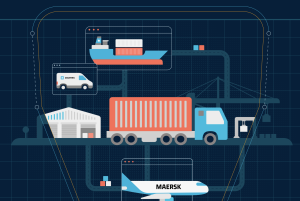 In our third consecutive quarter of negative growth, it’s becoming all too clear that South Africa is well and truly facing some tough economic times ahead, and businesses are already beginning to suffer.
In our third consecutive quarter of negative growth, it’s becoming all too clear that South Africa is well and truly facing some tough economic times ahead, and businesses are already beginning to suffer.
According to Statistics South Africa, weak manufacturing and trade sectors led the recession, with falls of 3.7% and 5.9% respectively in the period of Q4 2016 and Q1 2017. More worrying is that over the last quarter, the tertiary sector (comprising government, trade, transport, personal services and finance) recorded its first quarter of decline since 2009.
Times are tough and money is tight. And while it can be tempting to put your big plans on hold until the worst has passed, you might be missing a golden opportunity to recession-proof your business by shaking things up in your supply chain and adding more SME suppliers to your database, says Stuart Townshend, Edge Growth Director, in this month’s SmartProcurement.
By offering SMEs a valuable spot in its supply chain, an organisation is not only making an investment in the South African business landscape and offering entrepreneurs a helping hand – they are investing in their own competitiveness and continued relevance in tough economic times. Here’s how:
Agility
What’s the best way to get ahead of your competitors when there’s less and less business to go around? One way may be to evolve your business’s processes and digital capabilities. Another might be to develop new products or services, or improve customer service.
A smaller and more flexible SME supplier can help you do all this and more – quickly, more affordably and often with a greater level of bespoke customisation than their larger counterparts would be willing to offer.
Speed
Manufacturing in mass volumes, warehousing, logistics and many other factors tend to dramatically hamstring larger suppliers’ service speeds. A smaller, locally-based supplier, with fewer demands on their operations, is likely to be able to dramatically decrease turnaround times, translating into reduced costs and boosted real-time responsiveness for their clients.
Augmented access to new and emerging markets
In a period of recession, it’s not enough to merely aim to hold on to your existing clients. Breaking into new markets is equally important – and your SME suppliers can help you do this. Often on the cutting edge of innovation themselves, they can be a source of valuable insights into current trends and new solutions, to both capture new customers and better serve existing ones.
Improved competitiveness through B-BBEE scorecard
With national tender processes dominating the headlines lately, any business can be sure that compliance with B-BBEE mandates will be heavily scrutinised in the coming years.
Over and above the direct business advantages of partnering with SME suppliers, implementing an ESD programme is the most impactful way of improving a business’s B-BBEE rating, amounting to 40 of the total 107 points available. In times of recession, landing a lucrative tender can be the difference between failure and survival – so it is critical that you ensure that you remain eligible for such tenders.
Learn more by logging onto www.edgegrowth.com

























